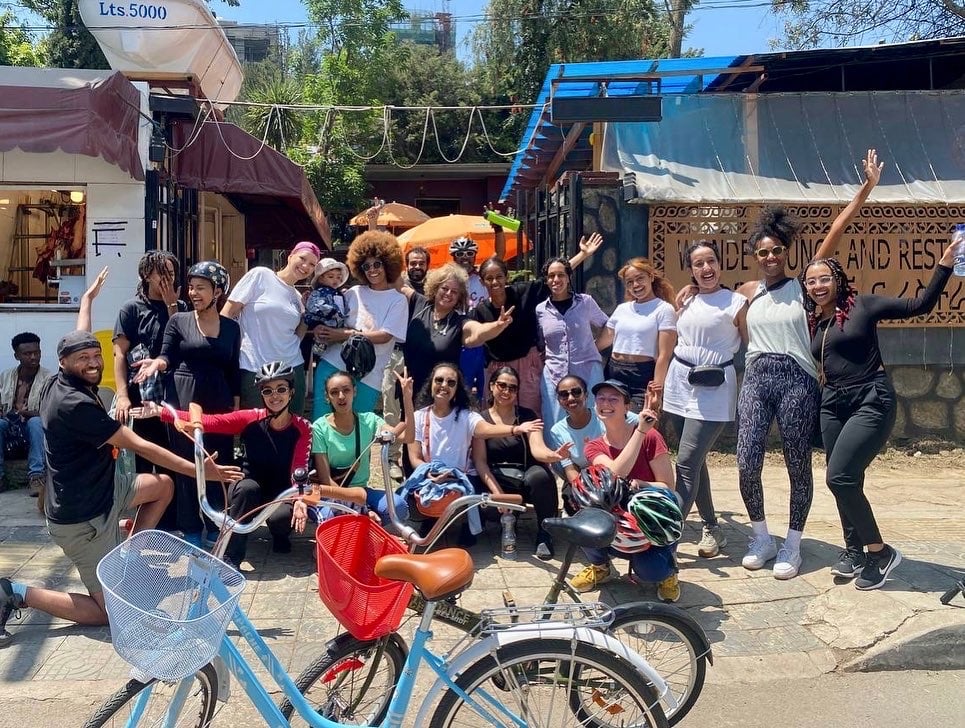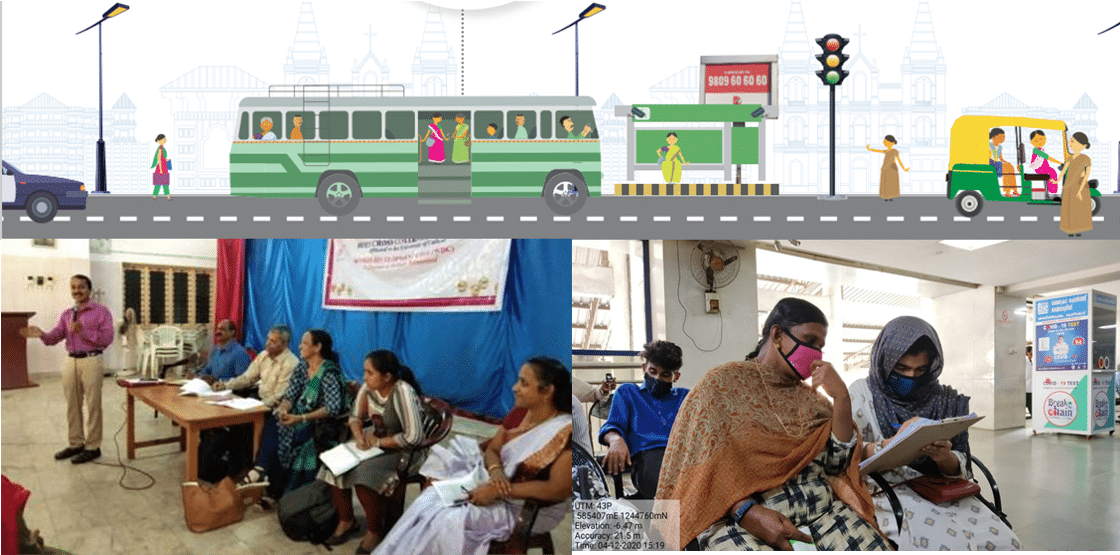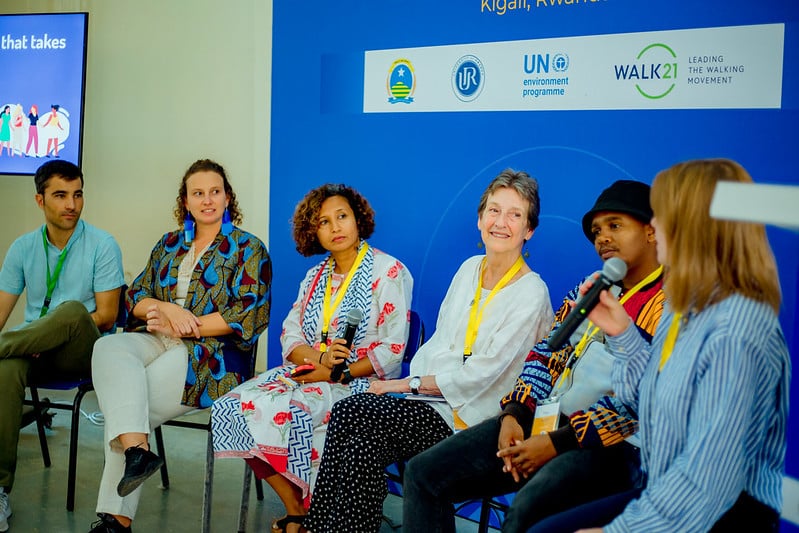Transport Situation in Africa’s Second Most Populated Country
Like most metropolises, Ethiopia’s capital, Addis Ababa, is an overcrowded, dense, and busy environment that leaves little space for its inhabitants to take public
spaces. Even though about 85% of society relies on active mobility or public transportation, the city is mainly built for motorized transportation, which causes a lot of congestion, pollution, and never-ending bus lines.
The local NGO Egre Menged Impact (EMi) made it their mission to actively work towards and advocate for non-motorized transportation, sustainable city development, road safety, and gender equality. With bicycle projects, EMi aims to bring change to the community and Government levels to design Addis Ababa into a more human-friendly, safe, and healthy city.
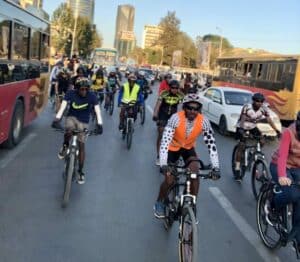
A transport transformation towards more sustainability is slowly becoming visible, with an increased number of bicyclists, the establishment of three companies that do bicycle delivery, and a dedication from the government to building bicycle lanes. Nevertheless, only some are part of this change.
Women and kids have not been involved in sustainable transport options and are rarely seen on bicycles for various reasons, even though they are more than half the population. They often feel less safe cycling with only a few existing protected bicycle lanes and streetlights, and cultural and familial expectations hinder them from learning cycling.
Egre Menged Impact offers free big-scale Women’s Bicycle Training in Addis Ababa. The project’s name, “Cycle ትችያለሽ” (Cycel Techiyalesh), is an Amharic word and means “You (female) Can too ride a Bicycle” in English and aims to empower women in Addis Ababa through cycling.
Free Bicycle Training for Women
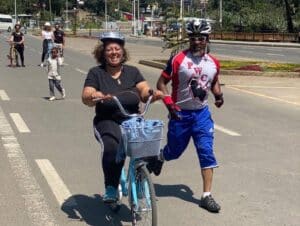
Together with the local NGO Lem Ketema, EMi purchased ten bicycles, helmets, and safety gadgets through donations collected through the platform GoFundMe and seed funding from the United Nations Road Safety Fund (UNRSF). Cycle ትችያለሽ creates a safe learning space for women where they learn in a group and experience the freedom of bicycle riding and empowerment. Not only while riding a bicycle but also as a critical player in the non-motorized transport sector. The training is open for every woman with bicycle experience and especially without. Since the training is a community movement that is free of charge, it also includes diverse groups of society with different economic settings and educational statuses.
The main goal of the Cycle Techyalesh program is to increase the number of women cyclists for commuting or leisurely use of bicycles in Addis Ababa. Furthermore, the participants’ self-confidence is raised, contributing to women’s empowerment in accessing alternative transport and opportunities for occupying public spaces autonomously. Omnia Elias, a graduate of the second cohort, elaborated on her journey to learn cycling:
“I can now confidently cycle around town, feel the wind on my face, and feel the adrenaline rush that comes with it. I have learned a new skill and perspective of life.” She added: “This adventure has taught me that learning has no expiration date.”
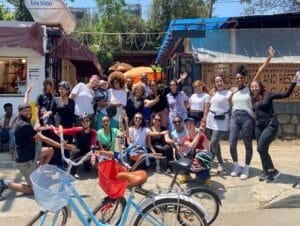
The training focuses on cycling, basic maintenance skills, and road safety. The first and second training cohorts graduated 30 female trainees, while more than 90 women are registered and waiting to participate. After each cohort, a graduation party is hosted where national and international stakeholders are invited to celebrate the participants, volunteers, and trainers.
The organizer emphasized graduates becoming the new trainers for the following cohort to make the training sustainable and encourage the women to become leaders and spread their new skills. Furthermore, Egre Menged Impact provides sustainability in the women’s learning process by encouraging them to join other weekly bicycle programs hosted by EMi and its partners, like Anbesa Bike Group.
The Bigger Picture
Cycle Techiyalesh brings gender equity to the streets where male cyclists and motorized transportation dominate. The project transforms the current transportation system, and the ultimate goal is to empower women to participate in that change. With that mission, Cycle ትችያለሽ actively serve the city’s current Non-Motorized Transport Strategy that targets 50% of women bicyclist on the streets until 2028. It strives to create a community that shares the values and dreams of a sustainable and inclusive city that is more accessible to the Active Mobility sector. The project goes beyond cycling and actively works towards several Sustainable Development Goals (SDGs).
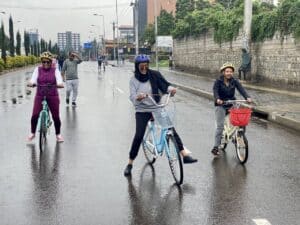
Soon, Egre Menged Impact plans to upscale its Women’s Bicycle Training to other cities in Ethiopia. Furthermore, in cooperation with local and international partners, the NGO aims to start bicycle and road safety training for kids and work towards early childhood education.
Explore the Non-Motorized Transport Strategy of Addis Ababa


Contact Information:
Addis Ababa, Ethiopia
Website: www.egremengedimpact.org
EMAIL: egremenged.cycling@gmail.com
FB/IG/LinkedIn/X/YT/TT: @egremengedimpact
Author: Maren Ahlers, Co-Founder Egre Menged Impact
Photos: Egre Menged Impact
